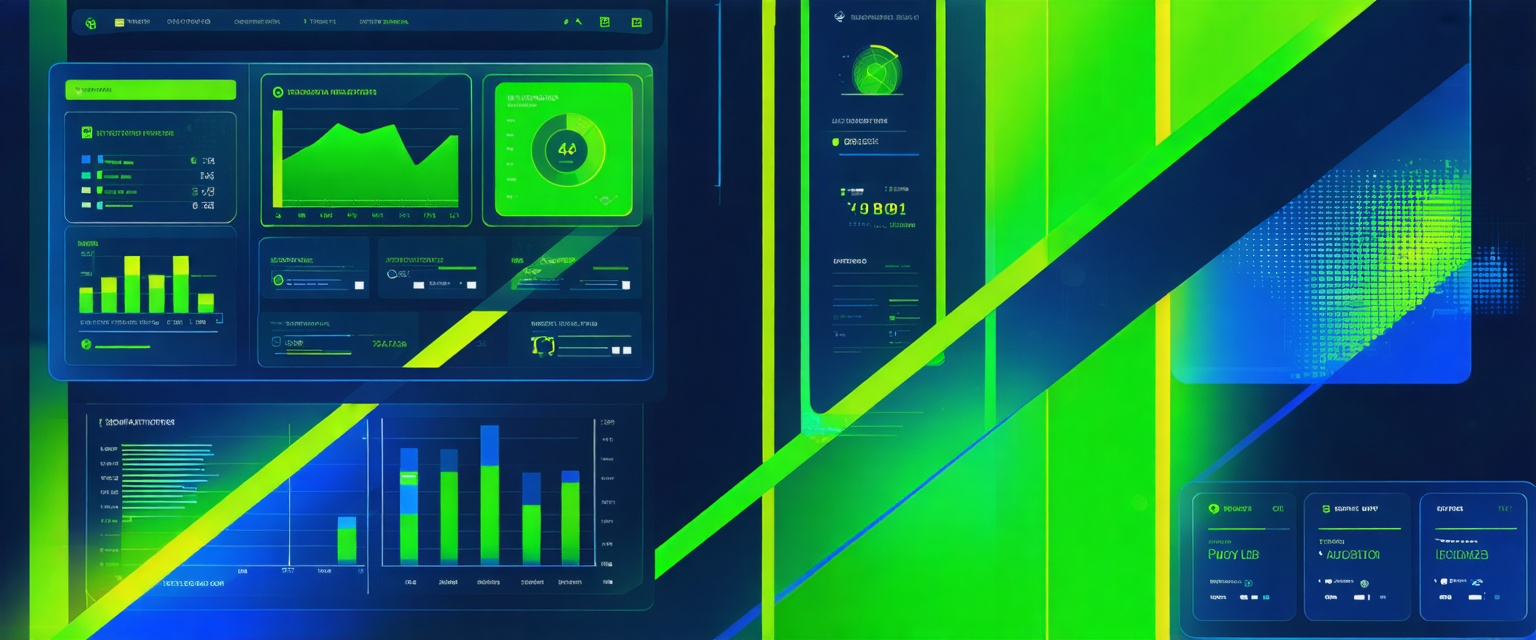Discover how AI agents empower Customer Success Managers by automating check-in meeting preparation, enhancing productivity and improving customer retention.
How Customer Success Managers Use AI Agents to Automate Check-in Meeting Prep Workflows
Check-in meetings often feel like catch-up sessions because prep work happens in fragments, usually across CRMs, usage dashboards, email threads, and support logs.
By the time you're ready, you've spent hours collecting scattered inputs with little time left to plan the actual conversation. The result? Shallow insights, missed signals, and reactive discussions that stall customer growth.
Not anymore.
Thanks to advancements in Agentic AI, it’s now becoming easier than ever to automate prep workflows and surface what matters. Datagrid’s data connectors link AI agents directly to your tools for fast, reliable insights. This article shows you how it works.
What Constitutes Check-in Meeting Prep for CSMs?
Effective check-in meeting preparation for customer success managers goes far beyond typical meeting prep. It involves synthesizing customer data and insights to support proactive engagement and retention.
CSMs handle the following during check-in meeting preparation:
- Compiling Account History and Recent Interactions: Building a comprehensive view of account history and recent touchpoints. This includes reviewing previous meeting notes, support tickets, and email exchanges to maintain conversation continuity and follow up on pending issues.
- Analyzing Relevant Metrics and Usage Data: Examining product adoption rates, feature usage statistics, and account health scores before each meeting. These metrics help identify successes, risks, and growth opportunities worth discussing.
- Setting a Tailored Meeting Agenda: Creating customized agendas based on account history and metrics analysis, which can be facilitated by automating content creation. CSM check-ins must align deeply with the client's business goals and how your solution supports them.
- Preparing Actionable Insights and Recommendations: Going beyond data reporting, CSMs can enhance data enrichment to develop practical insights, identify beneficial features, suggest process improvements, or propose solutions to challenges.
- Anticipating Questions and Concerns: Thinking ahead about potential client questions allows CSMs to prepare thoughtful responses and relevant resources, showing proactivity and expertise.
The Barriers to Efficient Check-in Meeting Preparation
Despite its importance, customer success managers face significant challenges when preparing for customer check-ins, affecting both productivity and meeting quality.
Gathering and Synthesizing Customer Data
The most time-consuming aspect of meeting preparation involves collecting data from disparate sources.
CSMs must pull information from CRM systems containing account history, support ticketing systems tracking recent issues, email threads with past communications, and usage analytics showing product adoption metrics.
This data fragmentation makes creating a comprehensive customer view exceptionally difficult. Manual data collection consumes precious prep time and increases the risk of missing critical information, highlighting the need to improve data accuracy.
Keeping customer profiles current becomes even harder when managing multiple accounts simultaneously, leading to incomplete preparation.
Creating Concise, Relevant Meeting Briefs
After gathering data, customer success managers must distill mountains of information into focused meeting notes and agendas.
The volume can be overwhelming, making it hard to spot actionable insights and customer-specific talking points that will drive value.
Each agenda needs to address specific customer goals and pain points, requiring deep understanding of their unique situation.
Time constraints often lead to generic content that diminishes check-in value, potentially hurting customer satisfaction and retention.
Coordinating Meeting Logistics and Scheduling
Finding suitable meeting times across different time zones is surprisingly complex, especially with global clients or distributed teams. Tools that automate meeting scheduling can alleviate this burden.
The back-and-forth messages to secure times for all participants steals valuable time better spent on strategic customer engagement.
Manual calendar coordination affects not just productivity but also responsiveness to customer needs, potentially delaying solutions or growth opportunities.
Why Improving Check-in Meeting Preparation Helps Customer Success Managers
Thorough meeting preparation directly impacts customer retention, satisfaction, and expansion outcomes. Better preparation processes give CSMs significant advantages.
Aligning Meetings with Customer Priorities
CSMs who come prepared can focus conversations on what truly matters to customers.
By reviewing data, recent interactions, and key metrics beforehand, they can identify current pain points, goals the customer is working toward, and areas where the product is underutilized, ultimately helping to enhance sales engagement.
This knowledge helps personalize content and craft agendas that address pressing issues and opportunities. For instance, if usage data shows declining engagement with a feature, the CSM can prepare targeted questions and solutions.
This focused approach creates actionable discussions and faster problem-solving, boosting customer satisfaction and loyalty.
Cutting Administrative Tasks to Boost Engagement
When customer success managers have necessary information readily available, they spend less time hunting for data and more time connecting meaningfully with customers.
Automated tools can compile relevant customer data, usage metrics, and previous meeting notes into concise briefs.
This automation frees CSMs to focus on active listening, relationship building, strategic problem-solving, and identifying growth opportunities.
Shifting from administrative tasks to high-value activities helps CSMs better understand customer needs and provide more proactive, personalized support.
Building Trust Through Consistent Readiness
Consistency in meeting preparation and personalizing outreach demonstrates professionalism and reliability, key factors in building customer trust.
When customer success managers consistently arrive well-prepared, they show customers that their business is valued, the CSM is invested in their success, and they can rely on the CSM as a knowledgeable partner.
This consistent readiness builds over time. Customers start seeing check-in meetings as valuable touch points rather than obligatory calls.
Well-prepared CSMs also handle unexpected questions more effectively, strengthening customer confidence in both the CSM and the company.
How AI Agents Automate Check-in Meeting Preparation
AI agents are transforming check-in meeting preparation by automating time-consuming tasks and providing data-driven insights that improve meeting quality.
Automated Data Collection and Customer Profile Synthesis
AI agents excel at gathering and synthesizing customer data from multiple sources, effectively automating data-intensive tasks.
They integrate data from CRM systems, support tickets, emails, and usage analytics while analyzing historical interactions and identifying trends.
This automation saves hours of manual research, allowing customer success managers to enter meetings fully informed about the customer's current situation.
AI systems can highlight key metrics and recent account activities that deserve attention, ensuring nothing important gets missed.
Generating Tailored Meeting Briefs and Agendas
AI creates personalized meeting materials aligned with customer health and priorities.
The technology summarizes recent interactions and key metrics while identifying potential discussion points based on account history.
AI can customize agenda items to address specific customer goals, ensuring each meeting is relevant and valuable.
This automated approach ensures consistency across all customer accounts regardless of CSM workload.
Intelligent Scheduling and Check-in Reminders
AI streamlines meeting logistics by analyzing calendars to find optimal meeting times across time zones, automating meeting logistics.
The technology can automatically schedule meetings and send invitations based on participant availability patterns, effectively enhancing email outreach.
AI-generated personalized reminders help reduce no-shows and improve meeting attendance.
This automation saves time and reduces scheduling conflicts that can frustrate both CSMs and customers.
Continuous Learning to Improve Preparation Accuracy
AI agents learn and improve over time by analyzing meeting outcomes and feedback to refine data collection processes, effectively transforming data into insights.
They adapt to evolving customer needs and CSM preferences based on what works best in actual meetings.
This continuous improvement leads to increasingly relevant insights and more accurate recommendations.
By using AI for these preparation tasks, customer success managers reclaim hours each week previously spent on administrative work, allowing them to handle more accounts with consistent quality.
Datagrid for Sales Professionals
Sales teams constantly juggle prospect information, deal documentation, and competitive intelligence across multiple systems. Datagrid's AI-powered platform delivers specialized solutions to accelerate your sales cycle.
Lead Intelligence Enhancement
Process thousands of prospect interactions, company data points, and market signals simultaneously to identify high-potential opportunities.
Focus your efforts on the most promising leads, increasing conversion rates and shortening sales cycles by targeting the right prospects at the right time.
Sales Document Automation
Extract critical information from RFPs, proposals, and contracts to generate customized sales materials that address specific client needs.
Save hours of manual work while ensuring proposals remain tailored to each prospect's unique requirements and pain points.
Competitive Win/Loss Analysis
Deploy AI agents to analyze won and lost deals across your CRM, identifying patterns in decision criteria and objection types.
Refine your sales strategy and improve win rates based on concrete data rather than hunches or isolated experiences.
Client Communication Intelligence
Automatically analyze email exchanges, meeting notes, and call transcripts to identify buying signals and stakeholder sentiments.
Navigate complex deals with greater insight and address concerns proactively before they become deal-breakers.
Pipeline Health Monitoring
Process historical deal data to predict close probabilities more accurately and identify stalled opportunities requiring attention.
Keep your pipeline healthy by focusing on the right opportunities at the right time, improving forecast accuracy.
Simplify Sales Tasks with Datagrid's Agentic AI
Don't let data complexity slow down your team. Datagrid's AI-powered platform is designed specifically for teams who want to:
- Automate tedious data tasks
- Reduce manual processing time
- Gain actionable insights instantly
- Improve team productivity
See how Datagrid can help you increase process efficiency.













